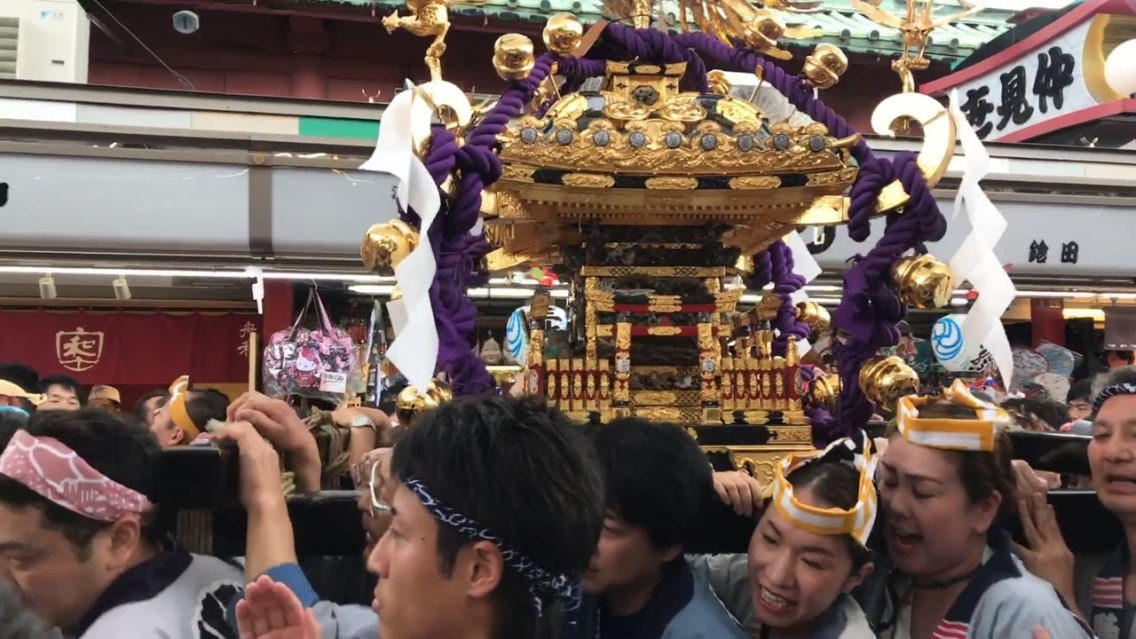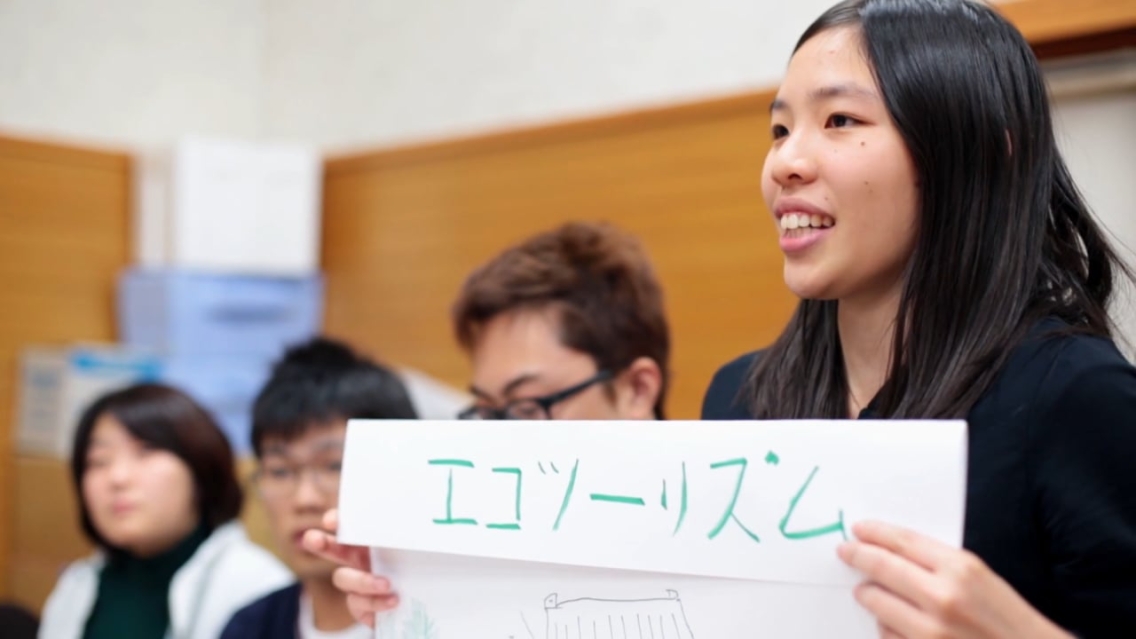
Study Abroad in Japan
With a population of 12 million, Tokyo’s history and modernity is seen throughout the city and its wards in the fast-paced approach to urban life juxtaposed against its architecture, traditions, and landscape—all of which make it an ideal location for study abroad.
Study Abroad: Tokyo, Japan
My name is Jen Menisis Montiel, and I studied abroad in Tokyo, Japan. Week one, day one, in Japan, my friends and I were already out and about, and exploring. It’s really interesting. Riding trains in Tokyo is a really fun experience. There was a way you could go from Shinjuku, to Harajuku, to Shibuya.
These are places that I had heard about but to like go there, live there, and become familiar with these places was super nice, and I mean I really appreciate having had that opportunity. Like being able to say that Japan was my home for a year, and these were like some of the places that I went to.
I was studying in ICU, International Christian University. Living in a dorm and having three Japanese roommates was really helpful. If I had a question on homework, or just general grammar. If I had heard something during the day that I didn’t understand, I could just walk out and be like, hello, what does this mean?
I was the most fluent student, and still am not. But knowing that I was able to survive, and not just survive but thrive, was awesome.
There’s so much that you learn only by experience and I think that would be the most important part. Is do you want to keep hearing about these things, or do you wanna be living them?
Do you want people to tell you this is good or this is bad, or do you wanna to be there to determine that for yourself? Think about that. Being abroad gave me the opportunity to reevaluate the things that matter in my life. And looking back I’m like well, l learned a lot especially from being in a culture that’s so vastly different from the United States.
And so I think If you want new perceptive on like the way the different countries function, there is no better way to do that than by studying abroad.
This program is designed for undergraduate students with proficiency in Japanese who can adhere to the Middlebury Language Pledge® while studying abroad. The Pledge shows a commitment to linguistic immersion and is the key to students’ successful language development and cultural integration.
Because of its suburban location in the Mitaka neighborhood, 30 minutes west of Tokyo, Middlebury’s School in Japan provides students with the advantages and opportunities of Tokyo while living and studying in a campus-like environment.
Middlebury’s host institution, International Christian University (ICU), is a nondenominational university founded in 1953 that now enrolls 2,900 students. It has a national reputation for superior language instruction and was the first liberal arts college in Japan.
Its academic offerings include Japanese language and literature, history, art history, psychology, linguistics, and international studies, among others. On-campus housing with Japanese roommates provides a personal view of Japanese culture and allows students to meet their Japanese peers through all student-run extracurricular activities and clubs.
Community Engagement
Middlebury has several opportunities for students to explore Japan outside the classroom. A key feature of the School in Japan is the Community Engagement course, in which students complete a 24-hour internship with a local organization in Mitaka. It is designed to facilitate meaningful, reciprocal relationships between students and their host community and to help students develop and integrate skills and knowledge of Japanese language and culture.
To learn more about the different internship possibilities, and see video presentations from past participants, see the Community Engagement Database.
Middlebury Global Partnerships for Sustainability in Japan
Working with Local Organizations
We’re here in the town of Chizu, with some Middlebury students and Japanese students from Tottori University of Environmental Studies. To work with people in these towns and villages who are trying to figure out how to bring young people back into their villages and help revitalize their economies in a sustainable way.
So over the weekend we went to Tottori, which is a very rural part of Japan. We learned about how cutting down and thinning the forest can help the local economy and help the locals, because the forests need to grow bigger but all these trees are taking up the sunlight.
We spent a day cutting down the trees, meeting new people, working together with Tottori Environmental School.
We had to come up with suggestions for what could help the town of Chizu facing the problems of depopulation. We had to present them to both the officials in the village as well as people in the village who wanted to come and hear our ideas.
It was really interesting to have the opportunity to talk to somebody in their own language about their own town, and sort of hear what they have to say about it.
This is important because it gives students studying abroad the opportunity to work closely with Japanese counterparts. It puts them more deeply into the culture they’re studying.
And when they’re successful at the work that they’re doing, they’re contributing something back to the places where they’re studying.
When people think of study abroad you think of of studying language. You think of improving yourself, kind of finding yourself in another country. But really, what does that do for the host country that you’re in?
How are you giving back to this country? And I think the idea of learning a language to better yourself is that you learn how to communicate with other people. Learn how to listen to together people and learn how to share these experiences, share your own cultural insights, and try to work together to create something new.
For more information about participating in the Global Partnerships for Sustainability projects with the School in Japan, contact Janet Wiseman, assistant director of the Office of Sustainability Integration at Middlebury.
Request Info
Fill out the inquiry form to get more information and updates from the School in Japan.
Request InfoStart Your Application
Review some important instructions so you’ll know what to expect on the application.
ApplyFollow Us
See what current students are up to in real time. Follow @middleburyschoolsabroad or click below for the School in Japan’s Facebook page.
Follow

